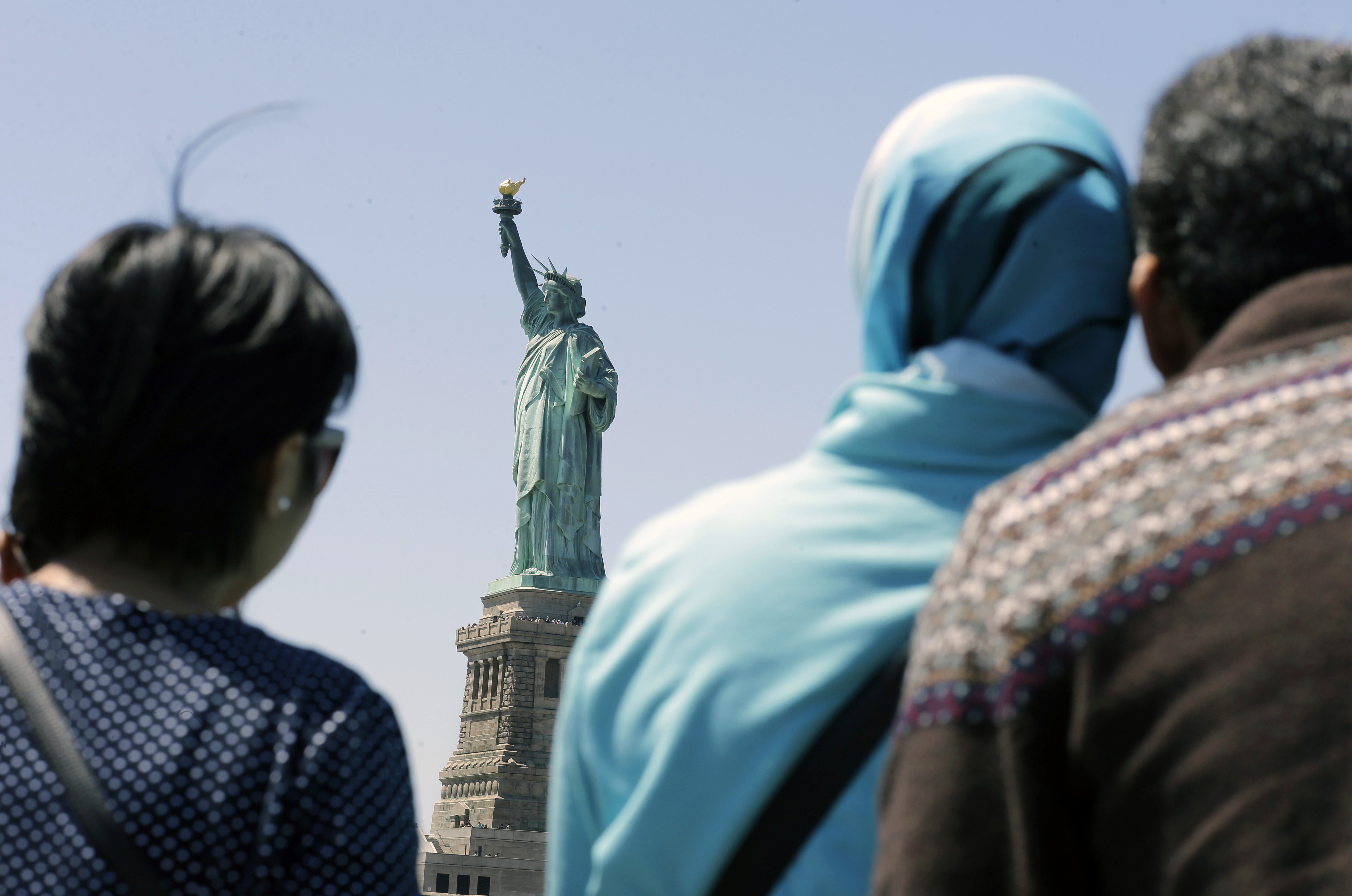The GOP's big problem isn't Donald Trump — it's immigration
If Republicans want to get serious about reform, they can start by looking to Canada and Australia


More than anyone else, Donald Trump has injected the debate about immigration back into the day-to-day of American politics. He has done this in two ways. He's tapped into the anger over America's immigration system, in which sanctuary cities enable violent criminals to evade deportation. And he has given the press highly printable copy. There are not many editors who would miss the chance to print: "Trump: 'Somebody's doing the raping.'"
His opponents have started to talk about immigration too; just look at Jeb Bush's Twitter feed. If Trump's opponents want to be constructive, they need to get serious about reform. America needs an immigration policy like a normal country, like Canada or Australia. It needs to actually enforce its borders, and select immigrants likely to succeed in America based on their skills.
The truth is that the U.S. has been searching for an adjustment to its immigration policies for over three decades. The political class has so far come up with amnesty and not much else. A Reagan amnesty in 1986, an Obama amnesty in 2014. Only the latter has been accompanied by anything like real enforcement of immigration law. And that enforcement effort is winding down.
The Week
Escape your echo chamber. Get the facts behind the news, plus analysis from multiple perspectives.

Sign up for The Week's Free Newsletters
From our morning news briefing to a weekly Good News Newsletter, get the best of The Week delivered directly to your inbox.
From our morning news briefing to a weekly Good News Newsletter, get the best of The Week delivered directly to your inbox.
There's been some pro forma fence-building, but in 2014 the foreign-born share of population in the United States grew to its highest level since 1921, just before the restrictionist Immigration Act of 1924. Nearly one in six adults living in America was born in a foreign country. As David Frum succinctly concluded, "American immigration policy has built a population that is younger, less educated, and poorer than it would otherwise have been."
Among countries with large foreign-born populations, America is near the top of the list. It is joined by countries that are struggling with complete regional breakdowns and refugee crises, like Lebanon, and nations where foreign workers will never have rights of citizenship and are the victims of racial caste systems, like Qatar and Kuwait.
America's immigration policy is partly the result of America's inflated sense of its own exceptionalism. In a sense, the can–do attitude on mass immigration is the flip side of the view that we can democratize the whole world through force of arms. If everybody can't be Americanized through migration or munitions, then America isn't America anymore.
But it is long past time for one of America's historic pauses in mass immigration, combined with a renewed focus on assimilation and integration of this last great wave of immigration. The first step is lowering the overall number of annual immigrants and being picky about those who get to come in.
A free daily email with the biggest news stories of the day – and the best features from TheWeek.com
America ought to look north for a start. Canada is also a "nation of immigrants." But Canada has a points-based system of immigration. Education, profession, work experience, employment skills, age, funds, and language skills all play a role. In 2012, only about 5 percent of people who obtained permanent resident status in the U.S. were professionals or had advanced degrees. Canada nearly doubled that rate. And recently Canada has put more emphasis on having a job already lined up.
Australia has a similar system and does a vigorous job on enforcement. Australia also creates strong incentives for would-be immigrants to follow the law, by permanently denying any chance of residence to those who try to enter the country without a visa.
Canada and Australia are countries with generous, but normal immigration policies. Neither state tolerates millions of undocumented immigrants. They also rank near the top of nations with foreign-born populations. Citizens in both those nations sometimes complain about the overall number of immigrants coming in, but unlike in America those numbers are knowable. There is no overall sense of lost authority or chaos when it comes to their borders and policy. The American states could even imitate Canada's provinces in making known the kinds of workers or employment that are in demand.
There is a lot of rhetorical and policy space in between America's dysfunctional immigration system and the antics of Donald Trump. In that space you could fit the immigration systems of most other advanced nations on Earth, and almost any of them would be more rational than our own. My advice to GOP policy entrepreneurs: Look first to Canada and Australia.
Michael Brendan Dougherty is senior correspondent at TheWeek.com. He is the founder and editor of The Slurve, a newsletter about baseball. His work has appeared in The New York Times Magazine, ESPN Magazine, Slate and The American Conservative.
-
 Bari Weiss’ ‘60 Minutes’ scandal is about more than one report
Bari Weiss’ ‘60 Minutes’ scandal is about more than one reportIN THE SPOTLIGHT By blocking an approved segment on a controversial prison holding US deportees in El Salvador, the editor-in-chief of CBS News has become the main story
-
 Has Zohran Mamdani shown the Democrats how to win again?
Has Zohran Mamdani shown the Democrats how to win again?Today’s Big Question New York City mayoral election touted as victory for left-wing populists but moderate centrist wins elsewhere present more complex path for Democratic Party
-
 Millions turn out for anti-Trump ‘No Kings’ rallies
Millions turn out for anti-Trump ‘No Kings’ ralliesSpeed Read An estimated 7 million people participated, 2 million more than at the first ‘No Kings’ protest in June
-
 Ghislaine Maxwell: angling for a Trump pardon
Ghislaine Maxwell: angling for a Trump pardonTalking Point Convicted sex trafficker's testimony could shed new light on president's links to Jeffrey Epstein
-
 The last words and final moments of 40 presidents
The last words and final moments of 40 presidentsThe Explainer Some are eloquent quotes worthy of the holders of the highest office in the nation, and others... aren't
-
 The JFK files: the truth at last?
The JFK files: the truth at last?In The Spotlight More than 64,000 previously classified documents relating the 1963 assassination of John F. Kennedy have been released by the Trump administration
-
 'Seriously, not literally': how should the world take Donald Trump?
'Seriously, not literally': how should the world take Donald Trump?Today's big question White House rhetoric and reality look likely to become increasingly blurred
-
 Will Trump's 'madman' strategy pay off?
Will Trump's 'madman' strategy pay off?Today's Big Question Incoming US president likes to seem unpredictable but, this time round, world leaders could be wise to his playbook


